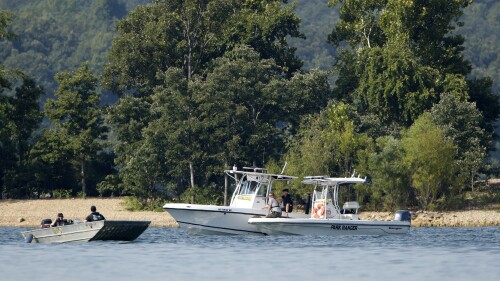MARCO ISLAND, Fla. — Leading through emotions and emotional pain were front and center for EMS leaders during the opening keynote presentation by Dr. Julia DiGangi at the Pinnacle EMS leadership forum.
DiGangi is a neuropsychologist, which she described as an emotion scientist, and has a unique perspective on teams and leadership based on understanding the connections between our brains, emotions and relationships. Drawing on lessons described in her book, “Energy Rising,” DiGangi described the function of the human brain as a high-powered pattern recognition machine and how the emotional state of uncertainty works against the brain’s desire to predict.
Memorable quotes
DiGangi gave an energetic presentation with important insights for leaders. Following are memorable quotes from the presentation.
- “Leadership is only necessitated when hard (or negative) feelings show up.”
- “Your relationships run on emotional energy.”
- “If you don’t clearly know how to lead yourself, why would anyone trust you to lead them?”
- “If over-functioning worked, you would be there by now.”
Top takeaways
DiGangi believes change is most likely to occur when we understand the brain and the emotion of uncertainty. Here are my 3 top takeaways from DiGangi’s presentation to EMS leaders.
Lead through stress
DiGangi discussed the importance of leaders to lead people through their negative emotions. Feelings like stress and frustration get in the way of individual and team accomplishment.The most successful leaders are able to lead themselves through their emotional pain, but DiGangi described the reality that the leader in a group or team isn’t based on title, authority or qualifications. In fact, “the leader is the person with the most potent emotional energy,” she noted.
Emotional pain is uncertainty
DiGangi tasked attendees with simplifying emotions and the emotional pain of their team without avoiding their emotional pain. Too often, leaders either shut down in response to emotional pain or match the pain. “We catch emotions like we catch colds,” DiGangi said.The first step to simplification is understanding the two types of pain, things that have happened or things that we are uncertain about. In DiGangi’s experience, the emotional pain of uncertainty is the only pain we experience, and the core focus of leaders should be on understanding and reducing uncertainty in themselves and others.
Manage your emotions to manage uncertainty
The conventional wisdom to manage uncertainty with calmness and communication rarely works because the leader lacks the feeling they are expecting. For example, telling someone to “calm down” if you are not calm will never work.DiGangi said, “You cannot give what you do not have.” You can only motivate when you feel motivated or get commitment when you are committed and not ambivalent.
DiGangi explained that the “opposite of uncertainty is not certainty. The opposite of uncertainty is identity.” Uncertainty is a pattern of “I don’t know” or “what if.” Leadership is a pattern of who “I am” in the face of challenges and disappointments.
The presentation ended with a demonstration of a power pattern – a statement of who you are across situations. Leaders were asked to “speak identity into yourself” with an “I am” statement.
Learn more:
- “Energy Rising” by Dr. Julia DiGangi
- EMS1 EMS leadership playbook
- Be consistent, fair and resilient: Leadership insights from EMS COOs
- Transforming EMS leadership: Beyond buzzwords to real change














